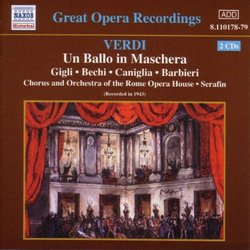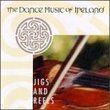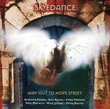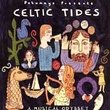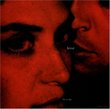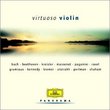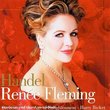| All Artists: Gino Bechi, Giuseppe Verdi, Tullio Serafin, Fedora Barbieri, Rome Opera House Orchestra, Maria Caniglia, Beniamino Gigli, Alessandro Bonci, Aurora Rettore, Blando Giusti, Elda Ribetti, Erminia Rubadi, Giannina Arangi-Lombardi, Giuseppe Menni, Maria Pia Pagliarini, N. Niccolini, Riccardo Stracciari, Salvatore Baccaloni, Tancredi Pasero, Ugo Novelli Title: Verdi: Un Ballo in Maschera Members Wishing: 0 Total Copies: 0 Label: Naxos Original Release Date: 1/1/1943 Re-Release Date: 2/19/2002 Genre: Classical Styles: Opera & Classical Vocal, Historical Periods, Modern, 20th, & 21st Century Number of Discs: 2 SwapaCD Credits: 2 UPC: 636943117828 |
Search - Gino Bechi, Giuseppe Verdi, Tullio Serafin :: Verdi: Un Ballo in Maschera
CD DetailsSimilarly Requested CDs
|
CD ReviewsGreat but not perfect....as usual for "Ballo" madamemusico | Cincinnati, Ohio USA | 02/15/2003 (4 out of 5 stars) "Verdi's "Ballo in Maschera" is, in my estimation, one of his very greatest operas, but as such it places heavy demands on the cast and conductor to "get it right." This is one of three recordings that I particularly love, the other two being the Toscanini (now sadly out of print) and the Solti. Over the years I have come to realize that middle-to-late-period Verdi was very strongly influenced by his friend Hector Berlioz, and so his operas must be approached as extended symphonies "with feeling." In this respect, Serafin and Toscanini provide the best conducting, Solti the best vocal cast. The problem with the Solti is that, as with his Beethoven, he slowed down his Verdi a bit; and in the great duet "O qual soave brivido" he neglects to accent the biting strings as Serafin and Toscanini did...in addition, his performance is a good 12 minutes slower than either of the Italian conductors, a real detriment for "Ballo."I owned this recording on LP and, like some other auditors, grew disenchanted by the thin, shrill, boxy sound. This Naxos reissue has fully "opened up" the dynamic range and amplitude of the original discs, with great effect. The problem with both the Serafin and Toscanini recordings is the lead tenor. Jan Peerce (Toscanini) sang with some feeling, but in general his bland, lower-placed tenor tended towards a lack of characterization, while Gigli (Serafin) hams things up too much in "La rivedra nell'estasi," the love duet and "Ma se m'e forza perderti" with his usual sobs and chuckle-sobs (hard to describe but, if you know Gigli, you know what I'm talking about). Also, in the Toscanini set, Robert Merrill (Renato) sings well but without characterization, a serious problem for this role. How I wish the Maestro had used his old standby, Giuseppe Valdengo, for the part!...but by 1954, Valdengo's voice had become wiry and unreliable, and besides, RCA Victor imposed Merrill on him. (They had also picked Jussi Bjorling for the tenor role, but he was in the throes of a two-month period of laryngitis at the time and had to cancel after one rehearsal.)If you can get by Gigli's idiosyncrasies in those three sections mentioned, however, you will appreciate this "Ballo." In other places Gigli sings with a perfect balance of lyricism and metallic ring; my only disappointment is that he does not sing the phrase "Si, rivederti, Amelia...Anche una volta l'anima d'amor mi brillera" ("Yes, to see you again, Amelia...my heart once more will glow with love") as passionately as Peerce with Toscanini or Pavarotti with Solti. I have always been much fonder of Maria Caniglia than most non-Italian auditors, I feel she was one of the great singer of her day, imperfectly captured on records but still thrilling and full in tone. Bechi is incomparably the best Renato on records and young Barbieri almost rivals old Christa Ludwig (Solti) for the drama and intensity of her singing.As for the bonus tracks, the ones by Alessandro Bonci are extremely interesting for a number of reasons. One is that, aside from Mario who created the role, he was Verdi's favorite Riccardo. He was also the tenor who introduced the chuckles into "E scherzo od e follia," not Caruso as another reviewer has mentioned...and, moreover, when Verdi heard them he LIKED them! (Pavarotti, by the way, reverts to score and does not do them.) Also, these electrical discs by Bonci eliminate much of the annoyance of his rapid vibrato that one heard on his acoustics, with the result that they make a fitting memorial to an outstanding tenor much admired by composers, conductors and musicians in his day. (His only other electrical recording was an aria from Puccini's "La Villi," obviously not included here.) Stracciari, generous of voice, nevertheless sounds old-fashioned and mannered with his portamento and rubato effects.My recommendation, then, is to buy this recording for its intrinsic value, which is considerable. If you desire a more perfectly-SUNG "Ballo," also buy the Solti. If the Toscanini performance is ever reissued (which I doubt it will be), you might want to consider replacing this one with his...but it, too, would only rate four stars because of Peerce's lack of metal and Merrill's blandness of characterization." They don't make them like this anymore 01/06/2003 (5 out of 5 stars) "I owned this performance on an old Seraphim LP and am glad to see it on CD. There are two stars on this CD, the tenor and the conductor. Good thing it's the tenor's opera. Gigli is simply the best Riccardo (or Gustav, or Count of Whatever) ever. The ideal blend of lyricism and metal, and the recording captures this perfectly. Too bad Bjoerling got fired from the Solti recording, or he might have given the Italian a run for his money. Even so, Gigli's performance is irresistible. He even manages to inject a welcome note of humor. But my God, what a voice. And Serafin is in tight control throughout. Listen to any other recording, or to the bonus Golden Age excerpts on this CD, and you'll grow impatient or annoyed. Either things are too slow or too fast, or there's too much pushing and pulling of tempo. Serafin gets everything just right, allowing the pieces to fall into place - lo and behold, this is a truly great musical drama. Caniglia is not that bad, really. She has one high note that is painful, comical and flat, but elsewhere she delivers a strong, committed performance in the raw, hairy Italian tradition. It's not the most beautiful voice you will ever hear, but she can be thrilling. I remember Bechi on the LP with a rapid vibrato that drove me nuts. On the CD he sounds great, and his performance is state of the art. Stracciari on the bonus excerpt might have better pipes, but he sounds blah by comparison. Bechi rocks. And the young Fedora Barbieri is a terrific, blazing Ulrica. Add the great Tancredi Pasero as Tom (or is it Sam?) and you have a first-rate cast, singing in a full-throated, expressive, dramatic style that has gone sadly out of fashion. The sound is OK and rarely intrudes. This is the only Ballo I own, or want to. Every, and I do mean every, other recorded performance is boring by comparison. Listen to this CD, and you will fall in love with the opera." What a sizzling opera this is! John Austin | Kangaroo Ground, Australia | 06/14/2002 (4 out of 5 stars) "Counting this amongst the handful of Verdi's very best operas, I suggest that music lovers who might already have a modern recording of this work (Muti's is in my collection) will not regret adding this zesty, juicy and pungent recording to their shelves.What a sizzling opera it is! On the one occasion that I saw it performed, I reckoned, at each interval, that each act seemed to supply almost everything an opera lover could crave. As the famous Italian tenor Beniamino Gigli neared the end of his career in opera, an opportunity was made to include him in a complete recording of this opera. He may not have been ideally cast elsewhere as a heart-broken clown or a triumphant Egyptian captain of the guards, but the role of Riccardo, Count of Warwick, fits him like a glove. You won't be able to resist the brio he brings to his two Act One arias and the golden tone displayed in his Act Three aria. Like almost all tenors in recorded history, from Caruso onwards, he interpolates some chuckles, unwritten by Verdi, in the Act One quintet "E scherzo od e follia". For Amelia, Verdi wrote some of the most demanding soprano challenges in the operatic repertoire. Sadly, the soprano Maria Caniglia, deemed thrilling and ideal for Verdi lyrical roles by Italian audiences of her day, is ill at ease and vocally rough and ready as recorded here. Her upper register is particularly ugly in the love duet. In an interview, this singer, who was so often partnered by Gigli in performance and recording, revealed that for a reason she could never ascertain he refused ever to speak to her. Perhaps this situation contributed to her inadequacy here. Other roles are taken by singers from a generation younger than Gigli. Gino Bechi, is in magnificent voice as Renato, even if he overdoes the "I'm the villain so hiss me" approach in all he sings. Fedora Barbieri, not far into her twenties, as Ulrica, successfully essays one of the roles she was to perform and record many times thereafter. Nicely contrasted with these voices and those of the other male principals, is the voice of Elda Ribetti as the page Oscar.The recording venue was the Rome Opera House, and the 1943 recording, excellent in its day, does not betray its age in this splendid Ward Marston remastering. Veteran conductor Tullio Serafin provides the required impetus in directing the performance. As the expected bonus, in this series of budget Naxos reissues, a selection of highlights from the opera recorded by other Italian singers of the 1920s and 1930s is offered, including the quartet and quintet that has so unjustly been neglected by record companies."
|

